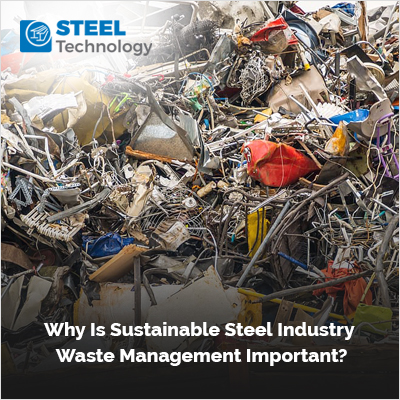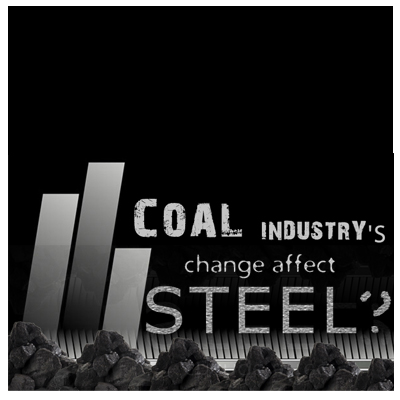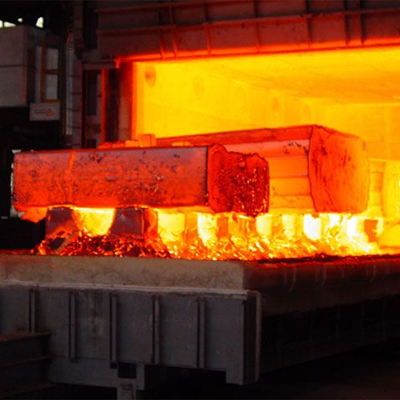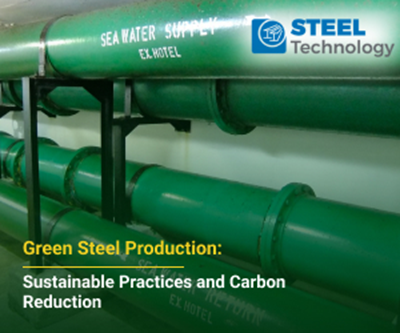Why Is Sustainable Steel Industry Waste Management Important?

Effective waste management is essential for the sustainability of the steel industry, addressing environmental concerns, conserving resources, and fostering a circular economy. Through practices like reducing emissions, recycling, and adhering to regulatory standards, the industry can enhance energy efficiency, achieve cost savings, and demonstrate a commitment to corporate social responsibility, appealing to environmentally conscious stakeholders.
The significance of sustainable waste management in the steel industry cannot be overstated, given its direct implications for environmental, economic, and social factors. Several key reasons highlight the critical importance of implementing effective waste management practices within the steel sector.
Environmental Impact:
The steel industry, while vital for economic development, poses significant environmental challenges. Traditional production methods involve the emission of substantial greenhouse gases, contributing to climate change. Sustainable waste management in this industry plays a crucial role in mitigating these environmental impacts.
a. Greenhouse Gas Emissions Reduction:
A major environmental issue within the steel industry is the release of carbon dioxide during steel production. The adoption of sustainable waste management techniques, including recycling and harnessing energy from waste, offers a substantial means to diminish the industry's carbon footprint. This reduction stems from the decreased reliance on energy-intensive procedures inherent in the manufacturing of primary steel.
| Also Read: Closing the Loop: Advanced Waste Management in the Steel Industry |
b. Conservation of Natural Resources:
The steel industry's dependence on finite natural resources, such as iron ore and coal, is substantial. Sustainable waste management, particularly through recycling, plays a pivotal role in preserving these resources by offering an alternative to the extraction and processing of raw materials. This conservation effort contributes significantly to maintaining biodiversity and reducing the environmental impact linked to mining and resource extraction.
c. Reducing Environmental Footprint:
Addressing not only emissions but also minimizing the environmental footprint of the steel industry, sustainable waste management is pivotal. Through a decrease in dependence on primary raw materials and the integration of recycled materials into the production process, the industry can take substantial steps toward establishing a more sustainable and environmentally friendly operation.
Circular Economy Principles in the Steel Industry:
The idea of a circular economy, which highlights the reuse and recycling of materials, integrates seamlessly with sustainable waste management practices within the steel industry.
a. Extending the Lifespan of Steel Products:
A fundamental principle of a circular economy is the extension of product lifespans. In the steel industry, this concept involves designing products for durability and facilitating the recycling of end-of-life materials. Sustainable waste management actively promotes steel recycling, thereby reducing the necessity for new production and fostering a more circular approach.
b. Minimizing Waste Generation:
A circular economy seeks to minimize waste generation by designing products with recyclability in mind. Sustainable waste management in the steel industry embraces this principle by prioritizing recycling and minimizing the disposal of steel waste in landfills. This not only conserves resources but also reduces the environmental impact associated with waste disposal.
Energy Efficiency in the Steel Industry:
Energy-intensive production processes are inherent to the steel industry. Sustainable waste management practices can significantly contribute to improving energy efficiency in this sector.
a. Role of Recycled Materials in Energy Efficiency:
In the steel production process, a crucial strategy for improving energy efficiency involves the utilization of recycled materials. When compared to the extraction and processing of raw materials, incorporating recycled steel demands less energy, leading to a more efficient production process. This not only diminishes energy consumption but also plays a significant role in decreasing the overall carbon footprint of the steel industry.
b. Technological Innovations for Energy Savings:
Sustainable waste management involves embracing technological innovations that promote energy savings. Advanced technologies, such as more efficient recycling processes and energy recovery from waste, can further enhance the energy efficiency of the steel industry. Investing in such innovations is not only environmentally responsible but also positions the industry as a leader in sustainable practices.
Resource Conservation and Waste Reduction:
Effective waste management in the steel industry is essential for conserving resources and minimizing waste generation.
a. Landfill Usage and Environmental Impact:
A pivotal component of sustainable waste management is the reduction of reliance on landfills for steel waste. Landfills not only consume valuable land but also present environmental hazards, releasing harmful substances into the soil and water. Through the minimization of landfill usage via recycling and responsible waste disposal methods, the steel industry underscores its dedication to environmental stewardship.
b. Responsible Handling of Steel Waste:
Sustainable waste management involves not only recycling but also responsible handling of waste materials. This includes the proper treatment of by-products and waste streams to minimize their environmental impact. Implementing effective waste-handling practices ensures that the steel industry operates in an environmentally responsible manner, addressing concerns related to pollution and ecosystem degradation.
Economic Benefits and Cost Savings:
Sustainable waste management in the steel industry not only demonstrates environmental responsibility but also provides economic benefits.
a. Economic Efficiency of Recycling: The recycling of steel frequently proves more cost-effective than the extraction and processing of new raw materials. The savings in energy and resources linked to recycling contribute to cost reductions throughout the production process. This economic efficiency not only advantages individual steel manufacturers but also bolsters the overall economic viability of the industry.
b. Economic Resilience through Resource Efficiency:
Efficient use of resources, a key component of sustainable waste management, enhances economic resilience in the steel industry. By relying on recycled materials, the industry becomes less susceptible to fluctuations in commodity prices and resource availability. This resource efficiency contributes to long-term economic stability and ensures the industry's ability to adapt to changing market conditions.
Regulatory Compliance and Industry Standards:
Adhering to stringent environmental regulations is paramount for the steel industry's sustainable waste management practices.
a. Legal Compliance and Environmental Standards:
Stringent environmental regulations govern the steel industry to ensure that it operates in an environmentally responsible manner. Sustainable waste management involves compliance with these regulations, covering aspects such as emissions, waste disposal, and water usage. Meeting and exceeding these standards not only avoids legal penalties but also fosters a positive public image for the industry.
b. Industry Standards and Certification:
Beyond legal requirements, the steel industry can voluntarily adopt industry standards and certifications related to sustainable waste management. Certifications such as ISO 14001 for environmental management systems or specific certifications for recycled content can signal a commitment to sustainability. These certifications enhance the industry's reputation and provide a competitive advantage in the market.
Social Responsibility and Corporate Image:
Embracing sustainable waste management practices aligns the steel industry with the broader concept of Corporate Social Responsibility (CSR).
a. Environmental Stewardship and Public Perception:
A commitment to sustainable waste management demonstrates environmental stewardship, portraying the steel industry as a responsible corporate citizen. This resonates positively with the public, consumers, and investors who increasingly prioritize companies with strong CSR initiatives. A positive public perception enhances the industry's social license to operate and fosters trust with stakeholders.
b. Appealing to Environmentally Conscious Consumers:
Consumers today are more environmentally conscious, and their purchasing decisions are influenced by a company's commitment to sustainability. By actively promoting sustainable waste management practices, the steel industry can appeal to environmentally conscious consumers, potentially expanding its market share and securing customer loyalty.
c. Investor Confidence and ESG Criteria:
Investors are progressively incorporating Environmental, Social, and Governance (ESG) criteria into their investment evaluations. A strong commitment to sustainable waste management enhances a company's ESG profile, drawing responsible investors and securing access to capital. This not only fortifies the financial standing of individual steel companies but also fosters the overall sustainability of the industry.
Conclusion:
In summary, embracing sustainable waste management in the steel industry represents a comprehensive strategy addressing environmental impact, resource conservation, circular economy promotion, heightened energy efficiency, and regulatory compliance. Beyond these tangible advantages, it plays a pivotal role in fortifying economic resilience, cultivating a positive corporate image, and meeting the rising expectations for socially responsible business practices. As the steel industry undergoes continuous transformation, prioritizing sustainable waste management is not merely essential but emerges as a strategic imperative for sustained success in a global economy placing an escalating emphasis on environmental sustainability.











